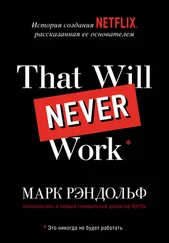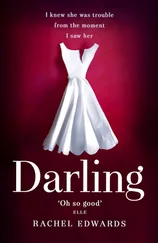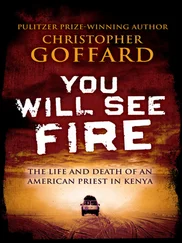She went in, hurried, the door open, blowing shut with an astonishing crack. And then he heard one scream, first scream of a woman he’d ever heard, something about it that froze his arteries, and he scrambled backward, turned about in expectation of something terrible all around him, always at his back, and turned and turned again, hearing that terrible echo in his skull, ran sobbing and laughing down to the cattle, the wind and the dust upon him, the first drops of rain thudding. The gray-green vaguely translucent cloud, like looking into the core of an enormity, of the universe, wavered above the hill. There would be hail.
“Come on, cows, come on,” he said, shouted finally, propelling them homeward, prodding them. They ran. He ran after, slipping in the mud, glad when the thunder erupted, the hail ripped the trees, drowning the awful sound of screams he yet heard in his hot brain, hearing himself whimper and when he heard that, hearing his own giddy laughter too. She had screamed, screamed terribly, really scared her. He had to laugh.

The heated summer passed; dry September came. They went to school again; walked a mile and a quarter to catch the bus. In the evening he got the cows furtively, quickly, with no open look beyond the fence, all was a terrible silence within him. Corner-eyed he glanced, pretended not to see, the blackened shacks, the free door on the cob shed, the gathered dust of road, of field.
“Dry year,” old Nystrom said, that big head almost ready to lop from those huge shoulders. “Not much corn this year.”
“No,” the father said. Not much corn any year where he farmed.
“Guess I’ll do the Widow’s patch first. Try out the picker over there.” Guff of laughter.
“Ain’t seen her,” the father said. “Lile said she ain’t been down to go to Martinsburg at all.”
“Oh, she does that sometimes. Gone for a year or more one time, I remember.”
“I’m glad she goes away. Gives me the creeps,” the mother said.
“No trouble I wonder?” the father said.
“Naw. Not with her,” old Nystrom said. “I sent Hank to knock on her door one time. Ask her about picking corn. No answer.”
The big-eared young man bent forward eagerly. “Man, I didn’t want to do it, afraid she’d jump out at me. But I knocked all right. Guess she went away.”
“Ya, she does that,” old Nystrom said.
“Good. Brr,” the mother said, shaking her thick body. “Gave me the creeps whenever I saw her.”
“I’ll go down and take a look myself before picking starts,” old Nystrom said.
On a stark October afternoon the boy went that way, after school, darted through the dry old sweet clover, the seed heads shattering the little seeds over that dry ground, saw the little lane grown with the tough foxtail, and the ditch run with weeds.
A wind had turned from the north. He shivered. The cob house door banged. There was no chicken, no hen in the coop, dust gathered there in corners. He waited and dawdled around the blackened door, touched with his toe the slivered and weathered step. No sound at all but the suck of wind, scurry of weed and dust.
He rapped upon the door, twice, and jumped back. No sound. If she would answer he would say (heard the words screeching to his ears) he would say, “The Nystroms want to see you.” Prepared it. No reply.
Behind him the scurfy field. The blue-white October sun, settling westward. He thought of knocking again, but backed away and went to the one side window.
In the shadows he saw dimly the whitely tufted skeleton of cat, hanging turning ever so slowly in the wind from the shattered window, and there the black clump of skirt huddled, folded by the stove, the one arm draped clutching still the handle of the oven, and the bunch of hair, the socketless eyes, and the face, the teeth, the drawn neck mummified almost, yellow-white, as if screaming yet in that last terrible agony he had heard, the face staring at him, in this total terror, and he heard again, plunging like a blade into his skull, that scream, piercing, shrill. He turned, feeling wet on his face, blubbering, turned and ran blindly, ran with all his might, howling himself, ran and ran, came to the deceptive weed-overgrown ditch, leapt…

It was just before noon the next day they found him, burrowed into the ditch at the side of the lane where it made its right angle leading down to the road, his head twisted to one side, the neck broken when he had tried to jump and misjudged and hit the weeded side of the ditch.
His mother set up a howl. All morning she had swung between frenzy and impatience, had said, “Where did he go? Wait till I catch him.” Changing to worry.
Now she howled. “He looks like he’s asleep. My baby.” His neck twisted over, his head resting lightly on his shoulder, his eyes closed almost peacefully, and on his tongue and lower lip a little crumble of dirt, taken as if in ceremony. As if he would awaken and swallow it now.
They carried him, dead and draped, behind them the fire of the buildings that the furious Nystrom had set.
“Poor kid,” old Nystrom said. “We shouldn’t have talked about her. He was just a curious kid, came up to see for himself what we were talking about, and what he saw was enough to scare anybody, scared me half to death when I saw her in there. Ran away, killed himself like that. She killed him.”
“Did you see the cat?” the oldest brother asked. “What was the cat there for?”
“You know her. She was up to something. Like everybody said. No doubt of that. Died herself. Best to burn it all, get clear of it. My fault. I shouldn’t have talked about it. Impressionable kid. My fault.”
They moved away then, one carrying the peaceful boy, the dirt still on his tongue. They trailed down from the puffing fire, the somber black figures an intrusion on that hard landscape, like a line of stone on that unforgiving horizon.
I was thinking of the heat and of water that morning when I was plowing the stubble field far across the hill from the farm buildings. It had grown hot early that day, and I hoped that the boy, my brother’s son, would soon come across the broad black area of plowed ground, carrying the jar of cool water. The boy usually was sent out at about that time with the water, and he always dragged an old snow-fence lath or a stick along, to play with. He pretended that the lath was a tractor and he would drag it through the dirt and make buzzing, tractor sounds with his lips.
I almost ran over the snake before I could stop the tractor in time. I had turned at the corner of the field and I had to look back to raise the plow and then to drop it again into the earth, and I was thinking of the boy and the water anyway, and when I looked again down the furrow, the snake was there. It lay half in the furrow and half out, and the front wheels had rolled nearly up to it when I put in the clutch. The tractor was heavily loaded with the weight of the plow turning the earth, and the tractor stopped instantly.
The snake slid slowly and with great care from the new ridge the plow had made, into the furrow and did not go any further. I had never liked snakes much, I still had that kind of quick panic that I’d had as a child whenever I saw one, but this snake was clean and bright and very beautiful. He was multi-colored and graceful and he lay in the furrow and moved his arched and tapered head only so slightly. Go out of the furrow, snake, I said, but he did not move at all. I pulled the throttle of the tractor in and out, hoping to frighten him with the noise, but the snake only flicked its black, forked tongue and faced the huge tractor wheel, without fright or concern.
Читать дальше












